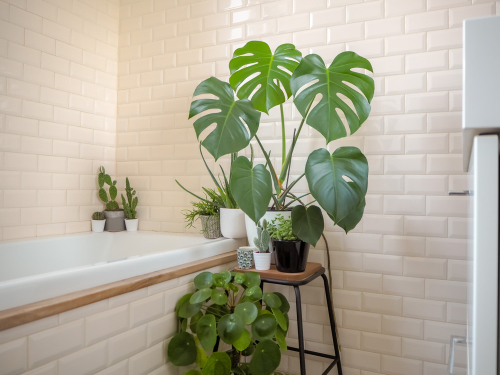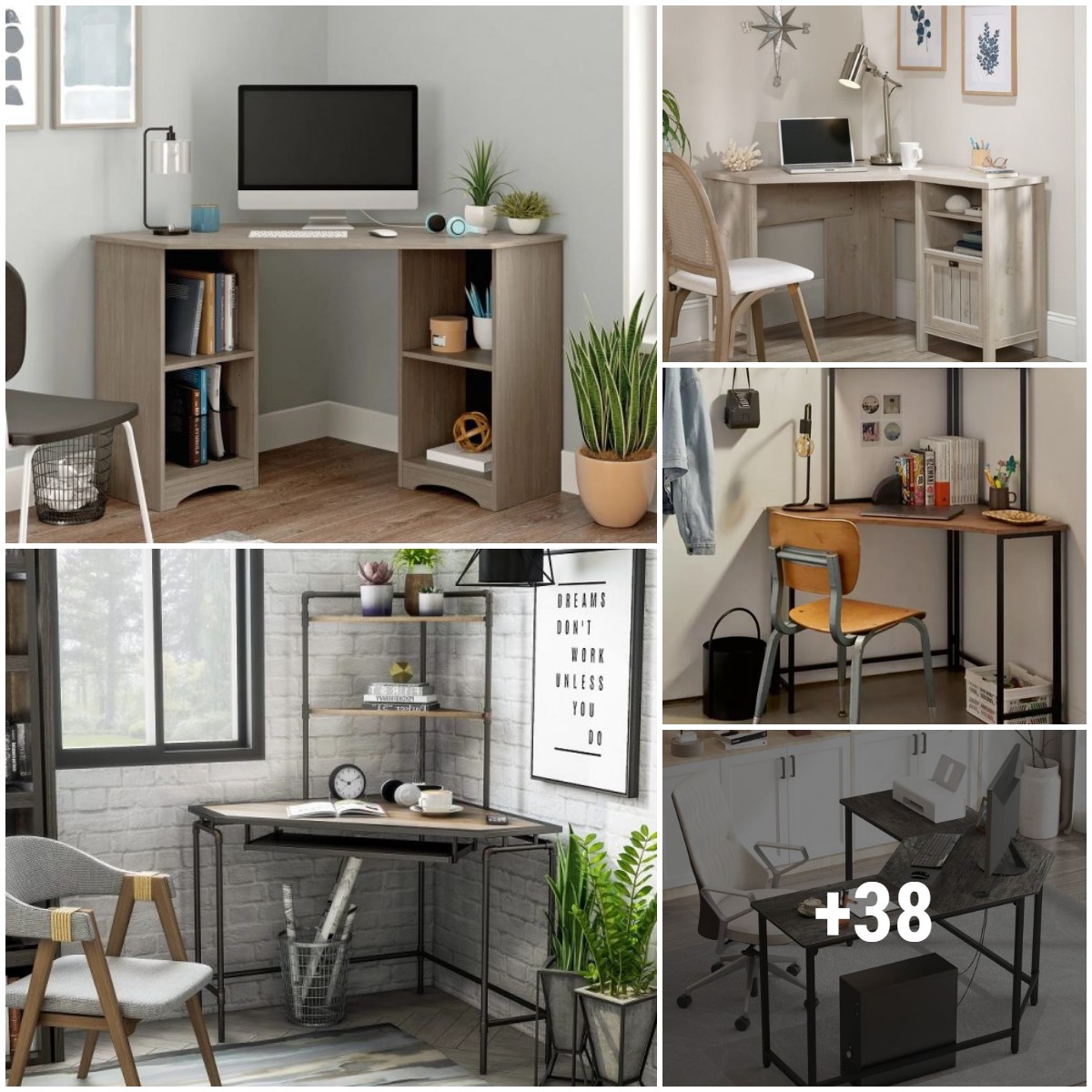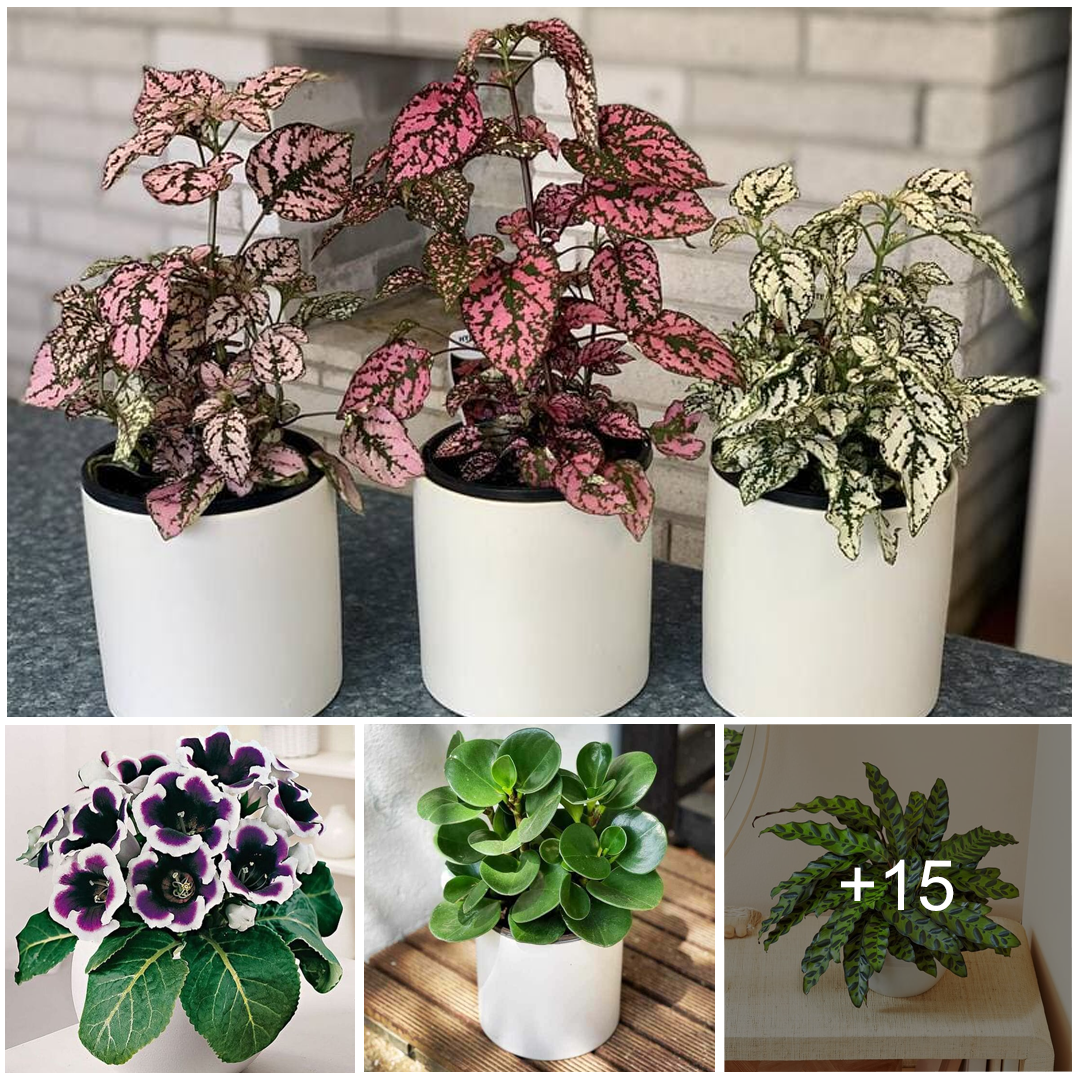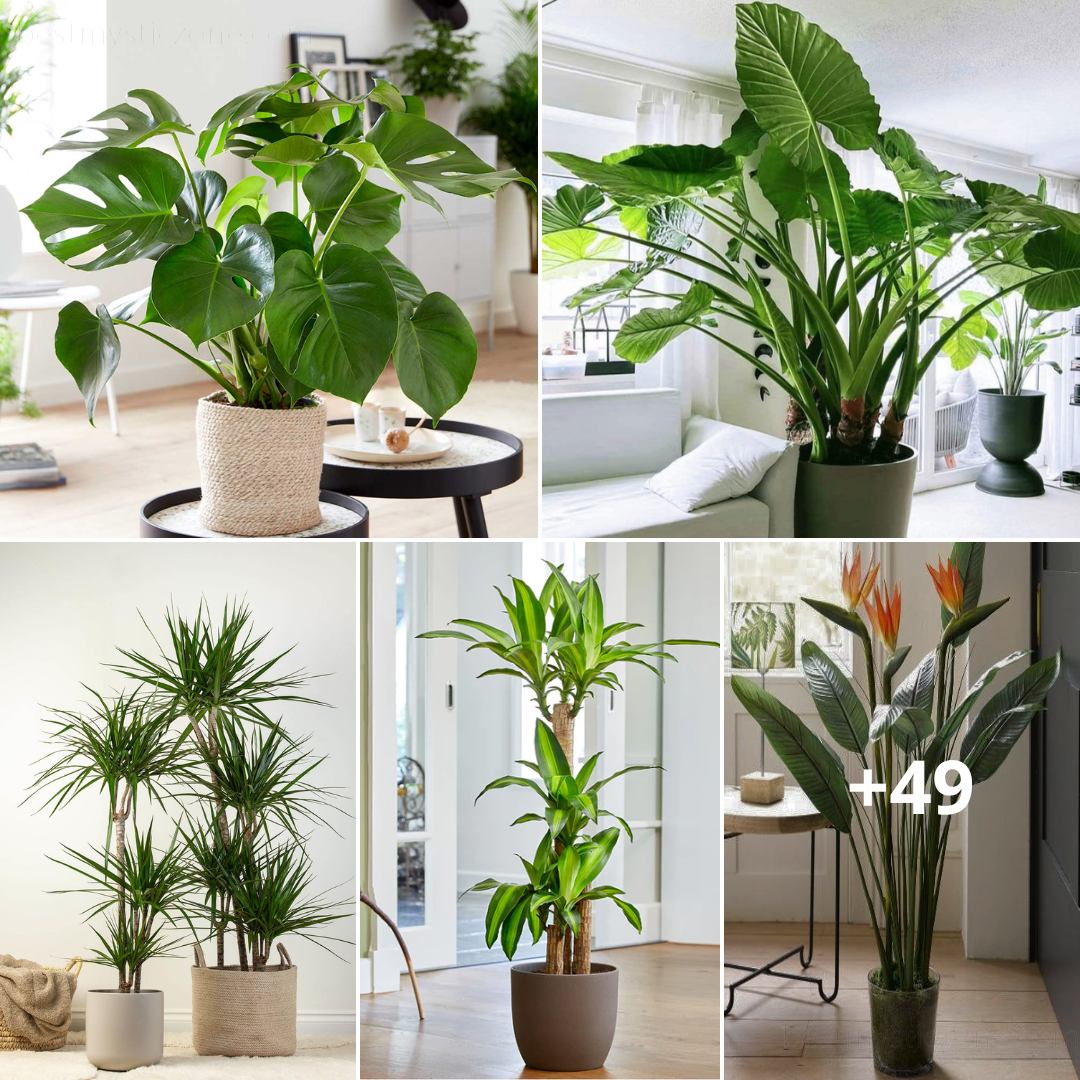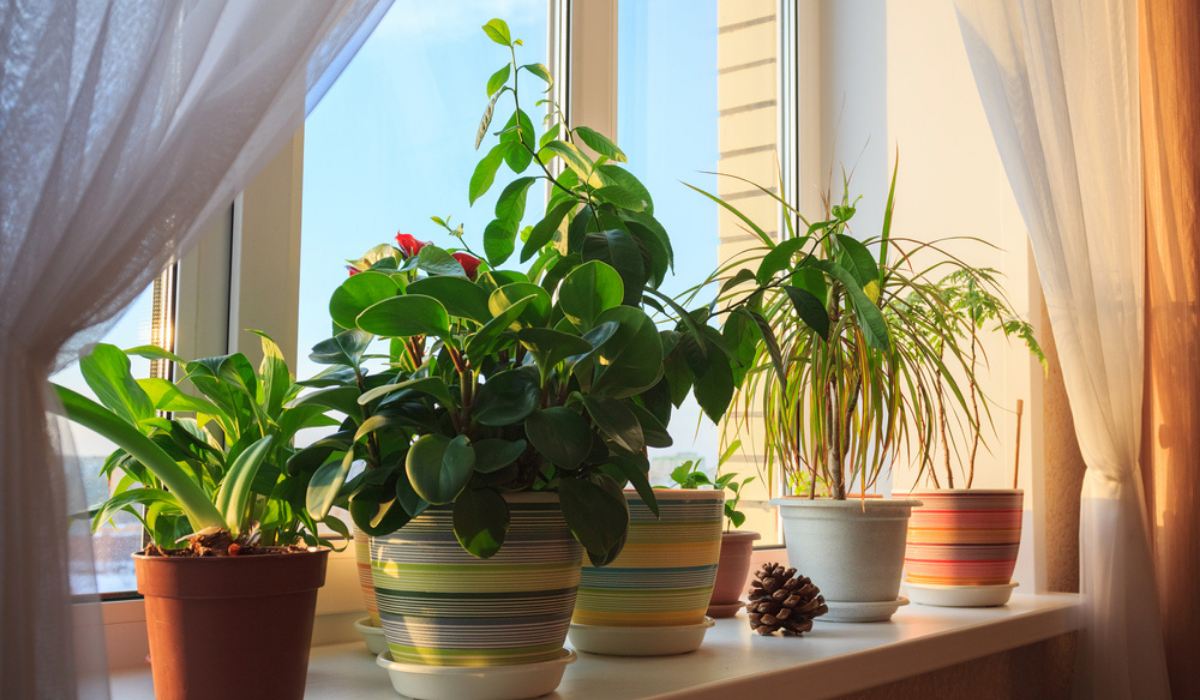
Here are some indoor plants Vastu tips, for nurturing suitable plants at home in specific locations, to bring good luck, peace and happiness.
Plants remove toxins from the air and make it cleaner and healthier to breathe. Plants also have favourable energies that boost the mood and help in relaxation. Plants connect us to the colour green that has healing qualities.
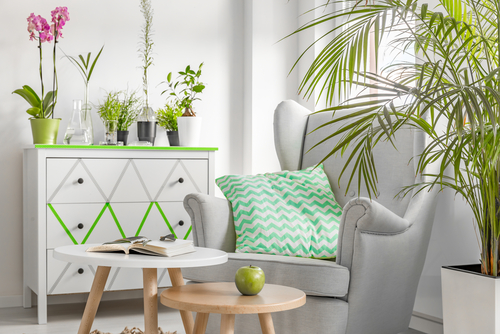
Benefits of indoor plants as per Vastu
As per Vastu, certain plants are considered auspicious as they remove negative energies and attract positive energies. Healthy plants, placed in the right direction, can attract abundance into your life. Vastu states that houseplants aid to maintain the flow and balance of energy in a household. They can also affect the health, affluence and fortune of the inhabitants. On the other hand, if the plants are not compliant with Vastu, they can attract negative vibrations and bad luck.
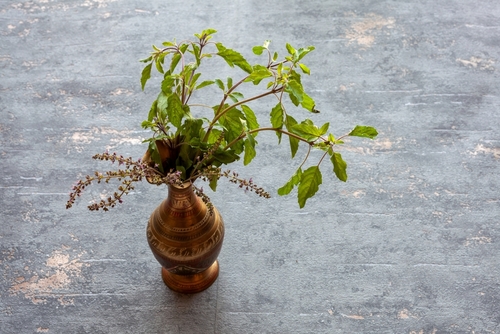
Here are the Vastu recommended indoor plants, which bring harmony, peace, prosperity and health to homeowners.
15 best Vastu plants for home
Discover the most beneficial plants for home according to Vastu Shastra.
Best indoor plants as per Vastu #1: Tulsi
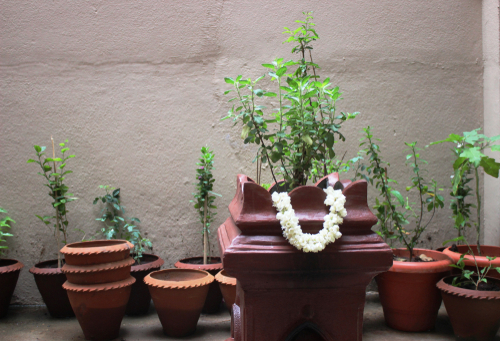
The tulsi plant is described as a form of goddess Lakshmi in the Vedas. The tulsi plant is auspicious for the financial, mental and physical health of the family. Vastu suggests a tulsi plant at home brings harmony, happiness and spirituality. Tulsi is also known as a mosquito repellent and has medicinal properties. The ideal place for the plant is in the east. You can also place it on the balcony or near the window in the north or the northeast. Ensure sufficient sunlight is available to the plant.
Best indoor plants as per Vastu #2: Lucky bamboo
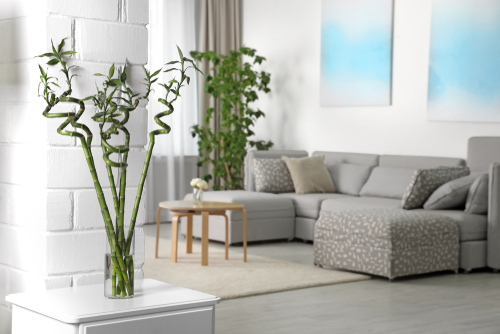
Bamboo plants are considered lucky according to Vastu Shastra and Feng Shui. Keeping bamboo plants at home leads to good luck, wealth and fortune. The lucky bamboo plant attracts well-being when placed in the east. It invites money and wealth when placed in the southeast. Keep bamboo plants at the centre of the dining table to boost positive energy and attract abundance. A six-stalk plant attracts prosperity. A seven-stalk bamboo symbolises good health. An eight-stalk bamboo brings growth and prosperity.
Best indoor plants as per Vastu #3: Money plant
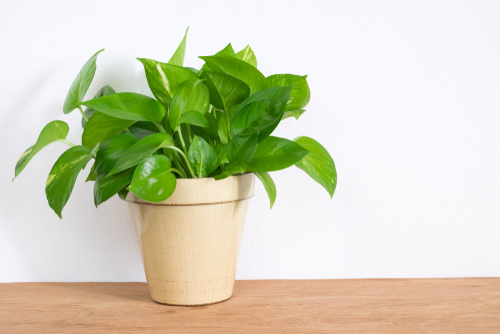
True to its name, the money plant is associated with wealth and prosperity. Money plants help remove obstacles in financial growth. It is believed that having a money plant at home brings good luck, happiness and positive energy and protects against evil eyes. Vastu states that you should keep a money plant indoors in the southeast of the living room for positive energies as Ganesha is the god of the southeast. Avoid placing the money plant in the northeast. Ensure that the vines do not grow to spread their leaves on the floor. Use threads or climbers so that the plant grows vertically upwards. A dried money plant is the symbol of misfortune. Never keep it at home. Avoid placing your money plant near the kitchen.
Best indoor plants as per Vastu #4: Jade
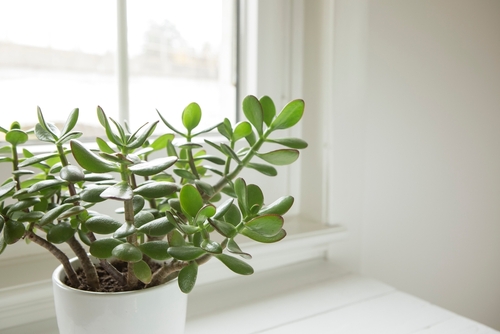
The jade plant is associated with positive energy, growth and prosperity in Vastu Shastra and Feng Shui. East, southeast, west and northwest are ideal directions to keep the jade plant. You can also keep this plant near the entrance to invite success and blessing. The dining room table, reflected in a mirror on the opposite side, is apt for a jade plant to bring abundance as the leaves resemble jade stones that symbolise wealth and prosperity. For good health keep a healthy jade plant in the east. Never keep the jade plant in a bathroom or bedroom.
Best indoor plants as per Vastu #5: Snake plant
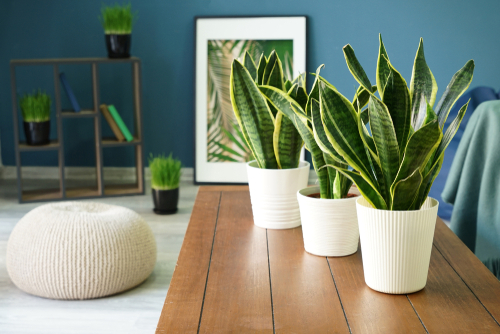
Snake plants spread positive energy and make an environment healthy by absorbing toxins and removing carbon dioxide. As per Vastu, keep the snake plant in the southeast. It aids in reducing stress and promoting a positive ambience. When placed near the window, it advances the oxygen stream and creates a calm ambience as it is regarded as one of the top air-purifying plants. As it releases oxygen in the night it is an ideal bedroom plant.
Best indoor plants as per Vastu #6: Peace lily
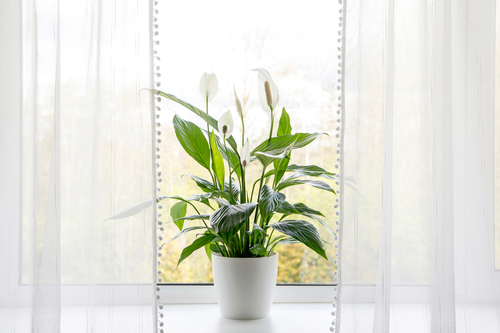
Peace lily, as per Vastu, is the symbol of love, peace and harmony. It keeps away negative energy and attracts good vibes. It is an air-purifying plant that signifies hope and healing. The best place to keep this plant is near a bedroom window. Keeping it in the bedroom can aid peaceful sleeping and benefit those who have insomnia.
Best indoor plants as per Vastu #7: Rubber plant
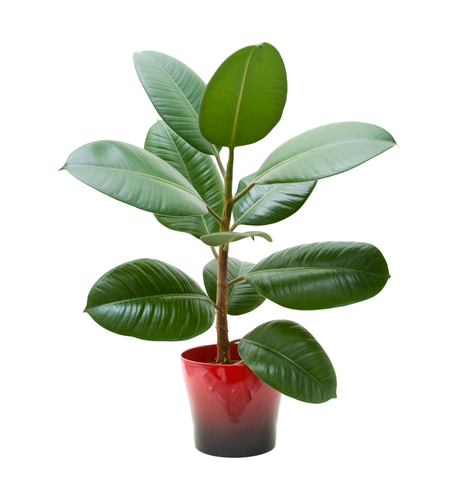
The rubber plant or rubber tree plant is one of the popular Vastu indoor plants. The rubber plant represents wealth and fortune even in Feng Shui, as its rounded leaves resemble coins. When placed in the home, it is believed to provide abundance. This plant removes toxins and improves the air quality. You must keep this plant in the southwest of the living room to get the best results.
Best indoor plants as per Vastu #8: Aloe vera
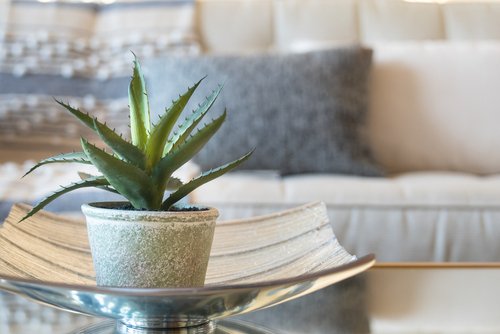
Aloe vera has been lauded for its healing and medicinal qualities. The aloe vera plant brings good luck and positive energy to homes. It is believed that the energy it releases can fight off bad vibes and bad fortune and add protective energies. Vastu suggests placing the aloe vera plant in the east or the north of the house. You can also place this plant within two to three feet of your computer to filter electromagnetic energies.
Best indoor plants as per Vastu #9: Areca palm
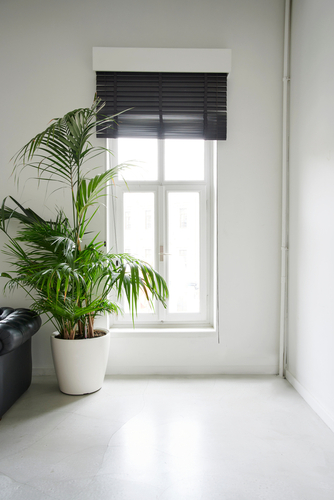
Areca palm attracts positive energy, neutralises negative energy and brings prosperity, peace and wealth into a home. The areca palm plant reduces air pollution, increases air humidity and helps in overcoming dryness. According to Feng Shui, place it in the north, east, southeast or south corners of the home.
Best indoor plants as per Vastu #10: Rose
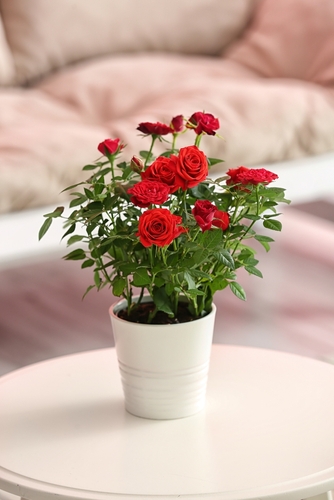
Blooming flowers bring feelings of vitality, improve mental health, lift the spirit and brings happiness. The rose symbolises love and passion. It is also believed to attract healing and luck. Alhough Vastu Shastra forbids thorny plants like a cactus, the rose plant is an exception due to its numerous benefits. Rose should be grown in the southwest corner of the house.
Best indoor plants as per Vastu #11: Jasmine
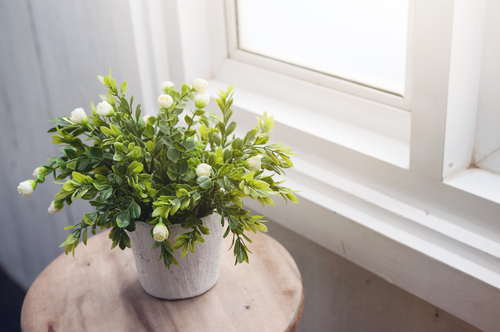
As per Vastu, the jasmine plant attracts positive energy and calms the nerves. The flowers are fragrant and bring positivity to the surroundings. It also helps maintain harmony in romantic relationships. It is the much-loved flower of Lord Vishnu and Lord Shiva. Jasmine is an effective Feng Shui houseplant that improves relationships. Place the plant near a south-facing window.
Best indoor plants as per Vastu #12: Chrysanthemum
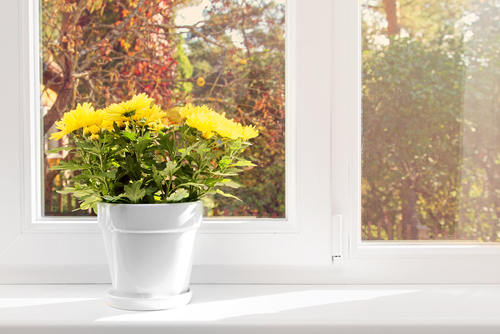
Chrysanthemum symbolises happiness, optimism, positive energy and good luck. Buddhists use this flower for offerings on altars. Symbolic of powerful positive energy, this flower attracts good luck and well-being in the home. The chrysanthemum is best placed in the living room of the house, but never in the bedroom.
Best indoor plants as per Vastu #13: Lavender
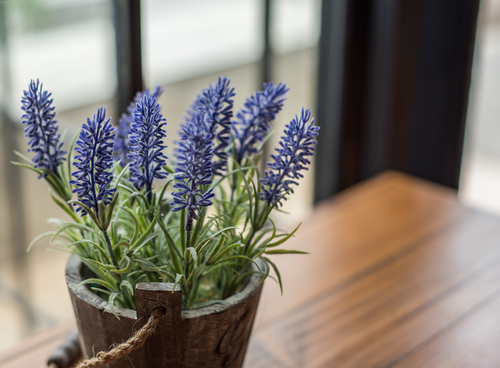
Lavender is notable for its aroma and therapeutic qualities. The lovely, floral fragrance that lavender flowers emit promotes good health, healing, happiness and relaxation, as per Feng Shui. The colour purple also symbolises wealth and prosperity. This Vastu plant attracts inspirational tones and calms down frayed nerves. Keeping a lavender plant in the bedroom is suggested for improving marital happiness. Keep the lavender plant in the north, east or northeast.
Best indoor plants as per Vastu #14: Daffodil
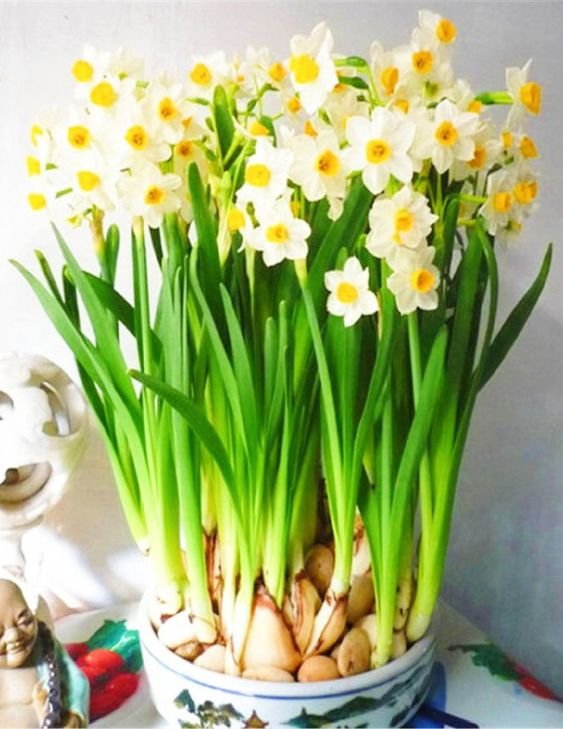
Source: Pinterest
The daffodil flower ranks among the finest Vastu plants for home, representing virtues of faith, truth and forgiveness according to Vastu Shastra. To harness its positive energies to the fullest, it is recommended to plant daffodils in the north or northeast direction of your house. This auspicious plant is believed to bestow good fortune and luck upon the household and its occupants. When selecting a daffodil plant, avoid the dwarfed variety, as it may lack the expansive positivity associated with its larger counterparts
Best indoor plants as per Vastu #15: Orchids
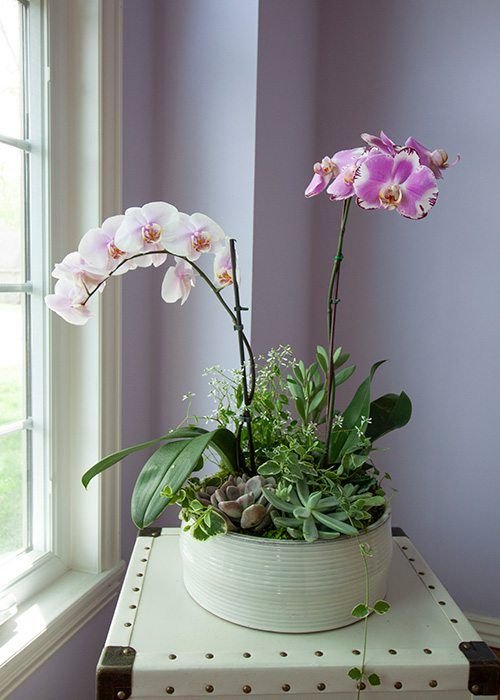
Source: Pinterest
Orchids (Orchidaceae family) are esteemed symbols of success and abundance. Adding orchids as Vastu plants to your home can infuse your living space with positive vibes and symbolise the flourishing growth of your entire family. These exquisite flowers not only add elegance to your indoor decor but also radiate an aura of prosperity and well-being. Including orchids in your living environment aligns with Vastu principles, inviting good fortune and harmony into your home.
Indoor plants: Dos and don’ts as per Vastu
- Always select healthy plants with vibrant foliage to bring good energy to your spaces.
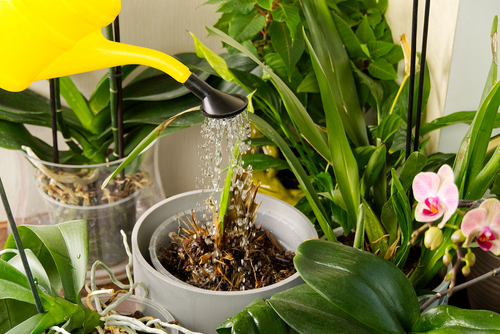
- Thorny plants, such as cactus, should not be kept at home. They attract negative energy, bad luck and impact family bonding.
- Remove dry, wilted or dead flowers and leaves regularly.
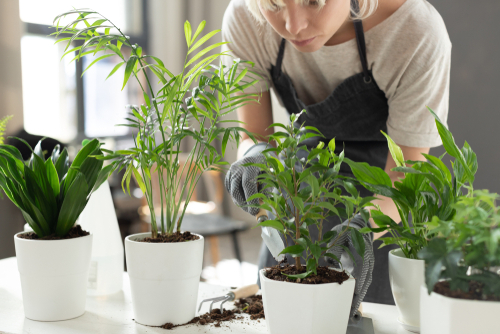
- Avoid using chipped or cracked pots.
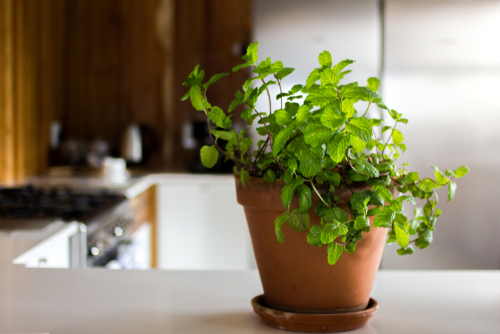
- Bonsai plants are believed to have stunted energy and lead to stagnation of wealth when placed indoors.
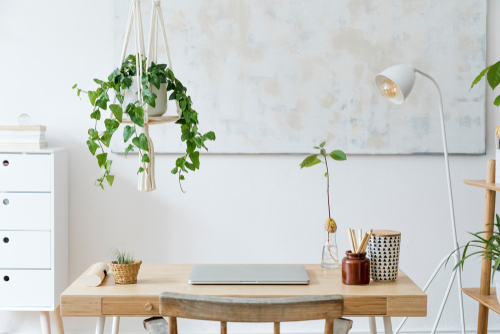
- Keep the leaves dust-free. Clean plants with a wet sponge regularly. If you have big plants wash the leaves.
- While the best energy is obtained from potted plants, fresh-cut flowers in a vase can also clear the vibes of the rooms that have energy deficits.
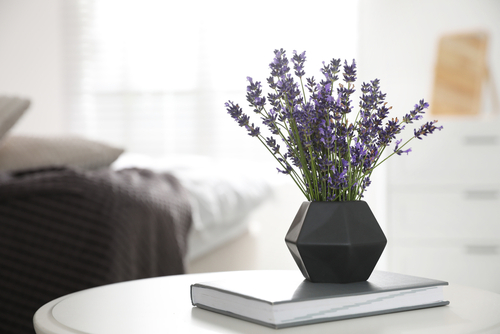
see also about: Parsley Leaves
- Do not grow banyan or peepal indoors. According to Vastu, avoid growing big plants in the northeast of the house.
